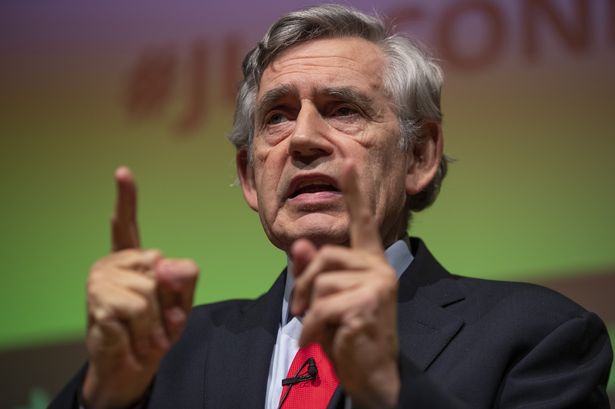Gordon Brown has said the world is “in danger of sleepwalking into a future crisis”, 10 years after the collapse of Lehman Brothers while he was Prime Minister.
The former Labour leader said it was difficult to pinpoint the cause of a future crisis, but that “we are at the latter end of the economic cycle where people take greater risks” and there were “problems in emerging markets”.
Mr Brown, speaking to The Guardian, said a crisis could start “in Asia because of the amount of lending through the shadow banking system”.
He said international co-operation between central banks and governments to stem the crisis seen in 2008 would no longer be possible as the focus would be on apportioning blame instead of fixing problems.
“Countries have retreated into nationalist silos and that has brought us protectionism and populism. Problems that are global as well as national and local are not being addressed,” he said.
“Trump’s protectionism is the biggest barrier to building international co-operation.”
Mr Brown said that there was still not enough fear of punishment for misdeeds in banking. “There has not been a strong enough message sent out that government won’t rescue institutions that haven’t put their houses in order.”
His warning joined other voices from the past talking about the current state of the economy a decade after the Great Recession.
Mr Brown struck a different tone to Bob Diamond, who was deputy chief executive of Barclays in 2008, later becoming its CEO.
Mr Diamond said a lack of risk-taking in finance today was a hindrance to performance. “If they are totally without risk, they are not helping create jobs and economic growth,” he told the BBC.
“The culture of banking now is that if anyone makes a mistake they get fined – or the bank is in trouble. Sit on a trading floor and you’ll see the real value this brings to the economy.”
He said that “we have to let banks be banks – and that means taking risks”.
Jamie Dimon, who has been the chief executive of JP Morgan Chase since 2005, said that his bank had acted for the good of all.
“We took a lot of actions that had nothing to do with profit motive. We felt a responsibility to help the system,” he told the Financial Times.
“Despite the penalties, we would act for the good of the system again.
“It wasn’t us versus our competitors during the crisis… we wanted to do right for the system.”
Lord Macpherson, the chief civil servant at the Treasury in 2008, said yesterday that the amount of blame put on Fred Goodwin, the head of RBS at the time, was “slightly unfair”. He said blame was ladled on Mr Goodwin, who was a villain “out of central casting”.
At the same event, RBS’s current chairman, Sir Howard Davies, defended the Government bail-out of the bank in 2008, saying it was “to save the UK financial system from collapse” and should not be viewed “as a financial investment”.
Alistair Darling, chancellor of the exchequer under Mr Brown in 2008, is due to add his thoughts on the legacy of the crisis on Thursday afternoon.
He will give a speech entitled ‘A Decade on from the Financial Crisis: the Legacy and Lessons of 2008’ at Chatham House, the international affairs think tank.
He will be joined by other speakers including Alison Cottrell, boss of the Banking Standards Board, and former Bank of England deputy governor Sir Paul Tucker.












